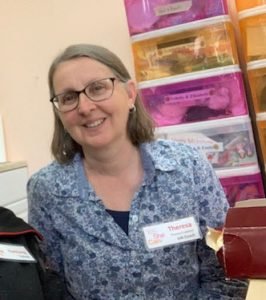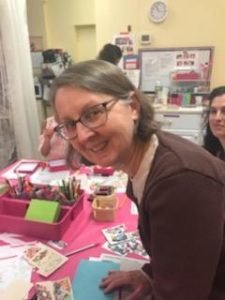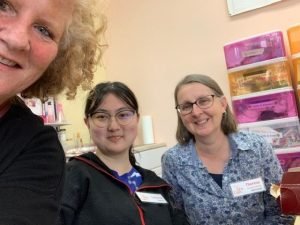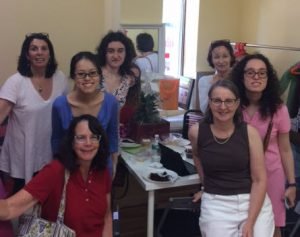 Autism and employment are a difficult combination in this world. This problem is something I have personal experience with— which is what led me to volunteer as a Job Coach with Yes She Can at Girl AGain boutique, something I have been doing for the last two and a half years.
Autism and employment are a difficult combination in this world. This problem is something I have personal experience with— which is what led me to volunteer as a Job Coach with Yes She Can at Girl AGain boutique, something I have been doing for the last two and a half years.
My 22-year-old son has a diagnosis of Asperger’s Syndrome*, which has impacted his life since age two, but the condition really hit him hard in adolescence. Although he has many strengths, his limitations due to sensory processing disorder, social and communication impairments, and executive function deficits, led to a point where he didn’t want to do anything. It happens that other members of my family are also affected by autism: they have skills and education, but social, communication and executive impairments prevent them from reaching their full potential.
One way I tried to get my son out in the community and try things he might consider as a career was to suggest that he do volunteer work. His way of thinking led to the response “you don’t do volunteer work, why should I?”
Well, that was when I decided I needed to set a good example. Eventually I found Volunteer New York and the volunteer posting for Yes She Can Job Coach.
 Although I did not have job coach experience, I used my 20 years of research and reading about autism -which I had undertaken to understand and help my son over the years – to coach the trainees in our program. I love the way the program is set up to provide the trainees with the experience of working in a real business, performing tasks that would be required in many jobs.
Although I did not have job coach experience, I used my 20 years of research and reading about autism -which I had undertaken to understand and help my son over the years – to coach the trainees in our program. I love the way the program is set up to provide the trainees with the experience of working in a real business, performing tasks that would be required in many jobs.
The job coach is there to help with problems as they arise in the work setting. My son used to say about the skills groups he attended that he didn’t know how to apply what he was learning to real-life experiences – he didn’t know which skill to use when. Yes She Can’s approach solves this problem by having difficulties arise in a real work setting at the store and teaching the trainees to work through solutions at that time.
For example, if a trainee is on the phone with a customer or processing a transaction, and doesn’t know how to answer a question, we can work on that in the moment. If a co-worker is playing music during a break and another trainee is distracted by the sound, we can work on what to say to each other to solve that problem. If a trainee has been working for a long time and feels she needs a break, we can work on how to ask her supervisor for what she needs and how to get back to work promptly after a break. These situations, and many more, are the things I work on with trainees at Girl AGain.
There are a lot of difficulties that prevent someone on the Spectrum from gaining and maintaining employment. I think one common factor is the anxiety and frustration that results from not being able to express difficulties clearly and not being understood so that adequate accommodations can be made to allow someone with autism to succeed. What I try to do as a coach at Girl AGain is help the trainees express what the trouble is, identify what help they need to get the job done, and recognize the accomplishments they are making. The reward for me is seeing a trainee grow and succeed.
Also, I may have impressed my son, who recently graduated from Fordham University, and had a summer job working as a counselor teaching tech skills.
*Asperger’s Syndrome was a designation under Autism Spectrum Disorders.

Theresa with trainees, coaches and parents at Girl AGain
###
Theresa Crawford has a professional background in medicine and currently serves as a teaching assistant for students with autism. She has been a valuable volunteer with Yes She Can for over two years and we are so grateful for her contributions and dedication.
Leave a Reply